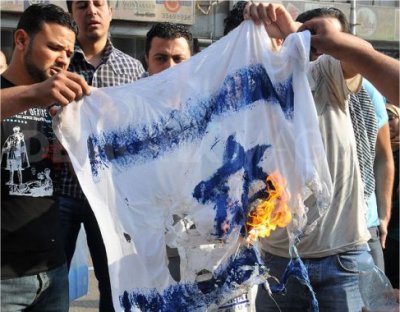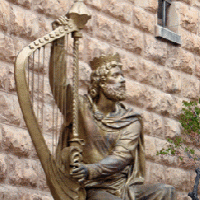![]()
Mon, May 16, 2011 | Rubin Reports | By Barry Rubin
The Middle East: The Possible/Probable Main Crisis for 2012
Save this note. Last year I predicted that Egypt’s instability might well be the big story of 2011. Why wait until December?
The central scenario for the Middle East in 2012:
Hamas attacks Israel with mortars, rockets, a few missiles, and a few attempts at cross-border attacks. Israel counterattacks into the Gaza Strip.
What does Egypt do?
A. Egypt with President Amr Mousa and parliament with Islamist (Muslim Brotherhood plus Salafist) majority or at least a radical nationalist-Islamist majority.
B. Egypt with President Abdel Moneim Abul Futuh of the Muslim Brotherhood with Islamist majority in parliament or at least a radical nationalist-Islamist majority.
There will be a great temptation for such a government, in either case, to join the war, setting the entire region ablaze.
Why wouldn’t Egypt do so?
A. The Egyptian army thinks it would lose. Then persuades the government to keep out. Pragmatism over ideology.
B. The Egyptian government doesn’t want to lose U.S. aid money. Pragmatism over ideology.
Problems with these constraints:
A. Radical nationalists and Islamists are not known for putting accurate calculations of military forces or money above ideology. See, for example, Egypt in 1967 starting a war with Israel; Iraq invading Iran and then Kuwait; Iran taking U.S. hostages and thus throwing away U.S. military aid; Afghan Taliban backing September 11 attack, etc.
B. Islamists especially believe in the power of their Allah-allied ideology to overcome any material factors.
C. Even if Egypt lost the war the regime would benefit in terms of popularity.
D. The regime would (wrongly) believe that it would draw in other countries thus changing the balance of forces and beginning a series of wars culminating in Israel’s destruction. It would be encouraged by massive pro-Egypt rallies in Damascus, Amman, and other Arab cities. Slogans include, “With blood and fire we redeem you oh Jerusalem!” “Jews remember Khaibar, the army of Muhammad is coming!” And various anti-American slogans. Possible attacks on U.S. embassies.
E. Radical nationalists and Islamists believe America is already their enemy, so what’s to lose?
How would the U.S. government respond?
A. President Barack Obama warns Egypt that breaking the U.S.-guaranteed Egypt-Israel peace treaty would bring a strong military response from America, an immediate aid cut-off, sanctions on Egypt, full U.S. aid to Israel, and possible U.S. military action against Egypt.
What? Oh, sorry, I was daydreaming for a moment. Let’s start that section over again….
How would the U.S. government respond?
President Obama would make a speech, call for a solution of the Israel-Palestinian issue, express his admiration for Islam, stress the need for further study, and play golf.
Have I left out anything?
I’m not saying this will definitely happen. Hamas might decide to delay seeking a confrontation; Egypt’s government might content itself with letting arms flow to Hamas and Egyptian volunteers flow into Hamas’s ranks.
I’m saying this could happen. It is a good idea to plan on how to handle such a crisis. It is even a better idea to stop such a scenario from happening at all.
And here’s an Egyptian demonstration outside Israel’s embassy. Today. Don’t see any police protecting the embassy, do you?
About the author,
Barry Rubin is director of the Global Research in International Affairs (GLORIA) Center and editor of the Middle East Review of International Affairs (MERIA) Journal. His latest books are The Israel-Arab Reader (seventh edition), The Long War for Freedom: The Arab Struggle for Democracy in the Middle East (Wiley), and The Truth About Syria (Palgrave-Macmillan). The website of the GLORIA Center is at http://www.gloria-center.org and of his blog, Rubin Reports, http://www.rubinreports.blogspot.com.



 RSS
RSS















The Middle East: The Possible/Probable Main Crisis for 2012 http://bit.ly/iOH8iI
The Middle East: The Possible/Probable Main Crisis for 2012 http://bit.ly/iOH8iI